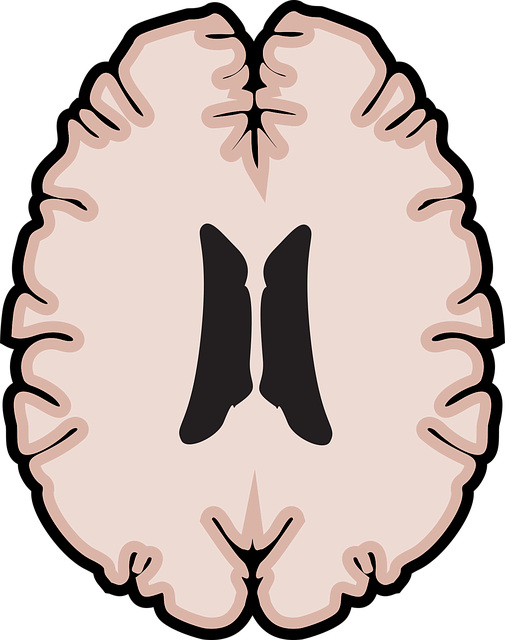Mental wellness self-assessment tools, such as those developed by Denver Postpartum Depression Therapy, empower individuals to manage their emotional well-being through evidence-based questionnaires. Tailored to address postpartum depression, these tools offer diagnosis and guidance for positive change, fostering open conversations about mental health. By integrating CBT practices like mindfulness meditation and self-care routines, assessments can identify issues and guide personalized interventions. Rigorous testing ensures accuracy and reliability, while user feedback drives continuous improvement, ultimately enhancing emotional regulation for new mothers.
Mental wellness self-assessment tools play a crucial role in individual and community well-being. This article explores the development of such tools, focusing on the unique contributions of Denver Postpartum Depression Therapy. We delve into the process, from understanding key aspects of mental wellness to integrating evidence-based practices. The piece highlights effective testing, implementation strategies, and continuous improvement techniques, drawing insights from the successful integration of Denver Postpartum Depression Therapy methodologies.
- Understanding Mental Wellness Self-Assessment Tools
- The Role of Denver Postpartum Depression Therapy in Tool Development
- Integrating Evidence-Based Practices into Assessment Design
- Testing, Implementation, and Continuous Improvement Strategies
Understanding Mental Wellness Self-Assessment Tools

Mental Wellness Self-Assessment Tools play a pivotal role in empowering individuals to take charge of their emotional well-being. These tools are designed to help people gain insights into their mental health, identify potential issues, and track changes over time. By utilizing evidence-based questionnaires and assessments, users can assess symptoms associated with common mental health disorders like postpartum depression (a significant concern addressed by Denver Postpartum Depression Therapy).
The development of these tools involves careful consideration of various factors, including cultural sensitivity, reliability, and validity. Incorporating aspects of Mental Wellness Coaching Programs Development ensures that the assessments are not just diagnostic but also promote guidance and support for positive change. Effective self-assessment tools can be a game-changer in encouraging open conversations about mental health and fostering access to appropriate resources, ultimately contributing to improved Emotional Well-being Promotion Techniques.
The Role of Denver Postpartum Depression Therapy in Tool Development

Denver Postpartum Depression Therapy plays a pivotal role in shaping effective self-assessment tools for mental wellness. This specialized therapy focuses on addressing the unique challenges faced by new mothers, many of whom experience heightened vulnerability to depression and anxiety during the postpartum period. By understanding the complex interplay between hormonal changes, life transitions, and potential trauma, therapists can design targeted interventions that contribute significantly to tool development.
Incorporating insights from Trauma Support Services and Community Outreach Program Implementation, these therapy sessions not only offer individual support but also foster a sense of community among mothers. The integration of Mental Health Education Programs Design ensures that participants gain knowledge about recognizing and managing their mental health, empowering them to proactively engage in self-assessment and seek help when needed. This holistic approach not only benefits the individuals but also has the potential to positively impact public health by promoting early intervention and improved mental wellness outcomes for new mothers.
Integrating Evidence-Based Practices into Assessment Design

Integrating evidence-based practices into mental wellness self-assessment design is paramount for developing effective tools that support individual well-being. Researchers and therapists can leverage scientific findings from fields like cognitive-behavioral therapy (CBT) to structure assessments tailored to specific concerns, such as Denver Postpartum Depression Therapy. By combining these therapeutic approaches with innovative assessment methods, practitioners can create comprehensive evaluations that not only identify mental health issues but also guide personalized interventions.
Mindfulness meditation and self-care routine development are examples of evidence-based practices that can enhance assessment design. Incorporating mindfulness techniques into the evaluation process allows individuals to demonstrate their ability to manage stress and maintain emotional balance—crucial components of mental wellness. Additionally, promoting self-care routines as part of the assessment can facilitate open discussions about lifestyle changes needed for better mental health, aligning with mind over matter principles.
Testing, Implementation, and Continuous Improvement Strategies

Testing is a crucial step in developing any self-assessment tool, ensuring its accuracy and reliability. A diverse range of participants, representative of the target population, should be involved to validate the instrument. This process involves administering the assessment to a sample group and comparing the results with established diagnostic criteria or existing measures. By utilizing psychometric techniques, such as factor analysis and test-retest reliability, developers can assess the tool’s validity and reliability. For instance, in the context of Denver Postpartum Depression Therapy, testing would involve comparing the self-assessment’s ability to identify postpartum depression symptoms with clinical diagnoses made by healthcare professionals.
Once a mental wellness self-assessment tool is developed and tested, its implementation in real-world settings becomes the next critical phase. This involves integrating the tool into existing mental health services, whether in clinical practices, community centers, or educational institutions. A well-designed implementation strategy should consider the target audience’s needs, cultural sensitivities, and practical considerations such as accessibility and ease of use. Regular feedback from users and stakeholders is essential to refine the tool further. Continuous improvement strategies, including iterative updates based on user feedback and research findings, ensure that the assessment remains relevant and effective over time, fostering better emotional regulation and mood management in individuals seeking mental health support.
Mental wellness self-assessment tools play a pivotal role in individual well-being, especially for new mothers who may be at risk of postpartum depression. By integrating evidence-based practices, such as those offered by Denver Postpartum Depression Therapy, these tools can effectively assess and support mental health. Through rigorous testing and continuous improvement strategies, we can ensure that these assessments are reliable and beneficial. This approach fosters a comprehensive understanding of mental wellness, empowering individuals to take control of their emotional well-being.












